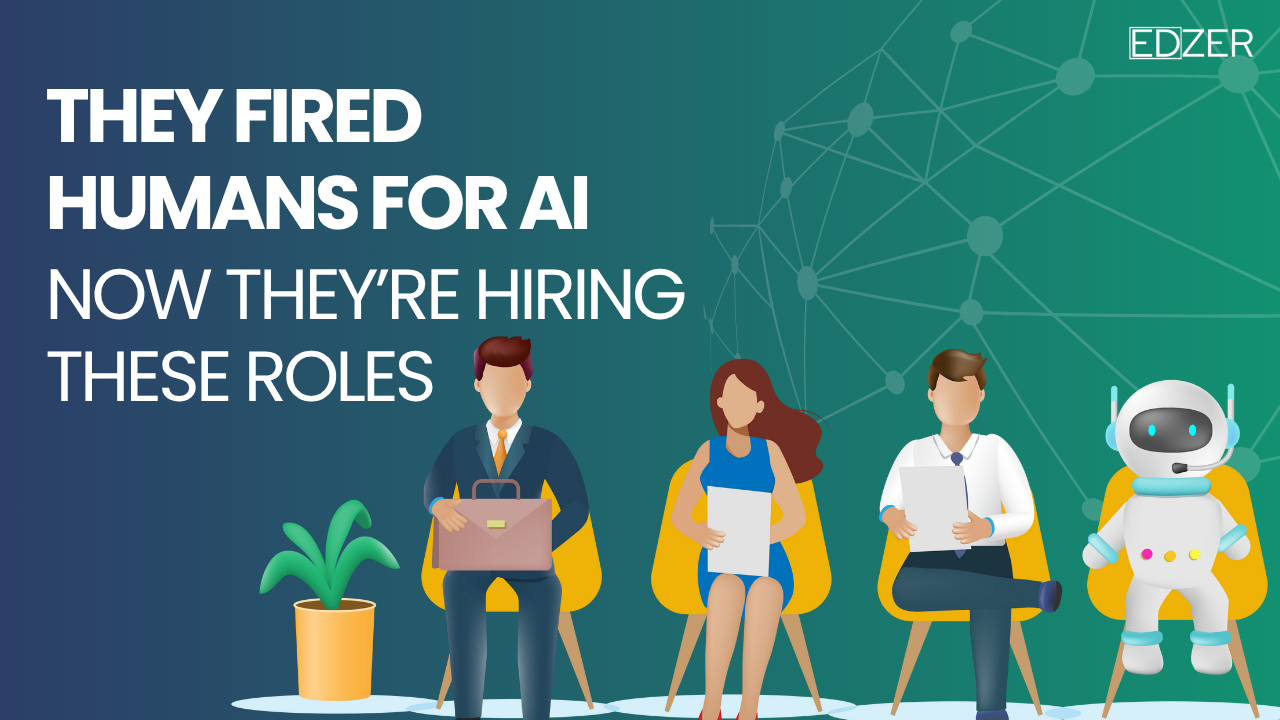Introduction
Artificial intelligence is undeniably transforming the job market. While automation continues to displace certain job categories, it is also unlocking new, in-demand opportunities across industries. Rather than eliminating all roles, AI is reshaping the workforce—and in doing so, creating space for roles that complement its capabilities. This post explores which professions are not only surviving but thriving amid this shift.
AI-Driven Job Disruption
One of the most visible impacts of AI is the pressure it’s placing on white-collar and entry-level roles. Analysts warn that a significant portion of administrative, clerical, and routine office jobs may disappear over the next five years. These are often roles that involve repeatable processes, which can now be efficiently handled by algorithms and automation tools.
However, this disruption is not absolute. In many cases, AI is transforming how tasks are performed rather than replacing jobs entirely. For instance, professionals may now rely on AI tools to handle data entry or research, freeing them to focus on higher-order responsibilities such as analysis, strategy, or decision-making. This shift emphasizes the importance of adapting existing skill sets to new technology rather than resisting change altogether.
At the same time, sectors heavily exposed to AI are not shrinking in value. Data suggests that industries integrating AI into their operations are seeing growth in productivity, wages, and demand for hybrid roles that blend technical expertise with soft skills.
Roles That Are Thriving
AI & Data Professions
AI engineers, machine learning specialists, and data scientists are among the fastest-growing roles globally. These professionals are building and refining the very systems that businesses rely on to automate tasks, generate insights, and make informed decisions. As more industries integrate AI, demand for these skills is expected to rise significantly.
Cybersecurity & IT
With the digital economy expanding, cybersecurity experts and fintech engineers are critical in protecting data, ensuring privacy, and managing complex IT infrastructures. As threats become more sophisticated, these roles require not just technical know-how but also strategic thinking and adaptability—traits that machines cannot replicate.
Robotics & Automation
Companies across logistics, manufacturing, and retail are investing in robotics and automation. This growth fuels demand for robotics engineers, systems integrators, and technicians capable of managing and improving automated systems.
Human-Centric & Service Roles
Not all booming roles are technical. Healthcare professionals, counselors, and caregiving specialists are increasingly in demand, particularly as populations age. Emotional intelligence, empathy, and interpersonal skills remain irreplaceable—making these roles more valuable in an AI-enhanced world.
Why These Roles Continue to Grow
The common thread among thriving roles is their ability to complement AI rather than compete with it. Professionals who can work alongside intelligent systems, interpret data, apply critical thinking, or offer human connection are seeing higher job security and earning potential. In fact, workers who bring AI literacy to their roles often command higher wages—even in traditionally automatable sectors.
Meanwhile, employers are prioritizing continuous learning. As technology evolves, so too do the expectations for skills. By 2030, nearly 40% of the core skills required for most jobs are expected to change. This has led to a growing trend toward skills-based hiring, with alternative credentials like online courses and certifications becoming more widely accepted.
Conclusion
AI is undoubtedly altering the employment landscape—but it’s not a story of universal loss. Instead, it’s a catalyst for evolution. Roles that blend technical expertise, human judgment, and adaptability are thriving. For professionals and businesses alike, the key to future success lies in reskilling, embracing change, and aligning with where innovation is headed.

